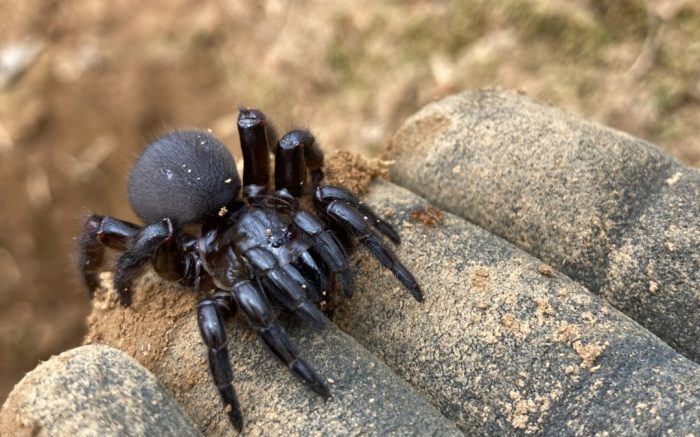How to trap a spider? It’s a question that plagues homeowners and arachnophobes alike. These eight-legged creatures may be fascinating to some, but for others, their presence can send shivers down their spines. Fortunately, there are numerous effective methods to trap spiders, both humane and lethal, allowing you to reclaim your home from these unwanted guests.
From sticky traps to natural repellents and advanced trapping techniques, this guide will equip you with the knowledge and tools to effectively eliminate spiders from your living space. Whether you prefer a hands-off approach or a more proactive one, we’ve got you covered.
So, let’s dive into the world of spider trapping and explore the best ways to keep these crawly critters at bay.
Methods for Trapping Spiders

Effective spider trapping involves employing various methods to capture these eight-legged creatures. One popular technique is utilizing sticky traps, which attract spiders with their adhesive surface. To maximize effectiveness, place these traps in areas where spiders are likely to travel, such as corners, along baseboards, or near windows.
Another DIY method involves creating a spider trap using a jar and a piece of paper. Simply place a small piece of paper over the mouth of the jar, securing it with a rubber band or string. When a spider crawls onto the paper, gently slide it into the jar and release it outside.
Vacuum cleaners can also be used to capture spiders, but caution is advised as some species may be resistant to suction. To increase effectiveness, use a vacuum cleaner with a hose attachment and carefully maneuver it around areas where spiders are present.
Natural Spider Repellents

Certain essential oils, such as peppermint and tea tree oil, possess repellent properties against spiders. Diffusing these oils in your home or applying them to cotton balls placed near potential entry points can deter spiders.
Plants like basil and lavender also have natural spider-repelling qualities. Planting these herbs around your home or placing them in pots near windows and doors can help keep spiders away.
Citrus peels and vinegar are other effective natural spider repellents. The strong scent of citrus peels can deter spiders, while vinegar can be used to clean surfaces and remove spider webs.
Habitat Modification for Spider Control
Reducing spider populations involves modifying their habitat to make it less hospitable. Regularly removing spider webs and egg sacs is crucial, as it prevents spiders from establishing breeding grounds.
Sealing cracks and crevices around windows, doors, and pipes can prevent spiders from entering your home. Additionally, reducing clutter and cleaning regularly eliminates hiding spots for spiders.
Advanced Spider Trapping Techniques: How To Trap A Spider
For more specialized spider trapping, consider the following techniques:
| Trap Type | Description |
|---|---|
| Electric Traps | Emit electrical currents to kill spiders on contact. |
| Ultrasonic Traps | Produce high-frequency sound waves that repel spiders. |
| Pheromone Traps | Use chemical lures to attract spiders, making them ideal for monitoring populations. |
Humane spider traps can be constructed using a box and a funnel. Simply place the funnel in the box, with the narrow end pointing upwards. Spiders will enter the box through the funnel but will be unable to escape.
Live bait, such as crickets or mealworms, can be placed in traps to attract spiders. This method is particularly effective for catching larger spider species.
Safety Precautions When Trapping Spiders

When handling spiders or their traps, it is essential to take safety precautions:
- Wear gloves to protect your hands from bites or allergic reactions.
- Identify venomous spiders in your area and take appropriate measures if bitten.
- Dispose of captured spiders properly by releasing them outside or flushing them down the toilet.
Question Bank
What is the most effective way to trap a spider?
The most effective way to trap a spider depends on the specific situation and the type of spider you are dealing with. Sticky traps are a popular and effective option for catching spiders, as they are easy to use and can be placed in areas where spiders are likely to travel.
Vacuum cleaners can also be effective for capturing spiders, but it is important to use a vacuum with a hose attachment to avoid being bitten.
Are there any natural ways to repel spiders?
Yes, there are several natural ways to repel spiders. Essential oils such as peppermint and tea tree oil are known to be effective spider repellents. You can diffuse these oils in your home or apply them to cotton balls and place them in areas where spiders are likely to enter.
Plants such as basil and lavender can also be used as natural spider deterrents.
How can I prevent spiders from entering my home?
To prevent spiders from entering your home, it is important to seal any cracks or crevices around windows, doors, and pipes. You should also remove any clutter from your home, as this can provide hiding places for spiders. Regular cleaning can also help to deter spiders, as it removes their food sources and webs.
